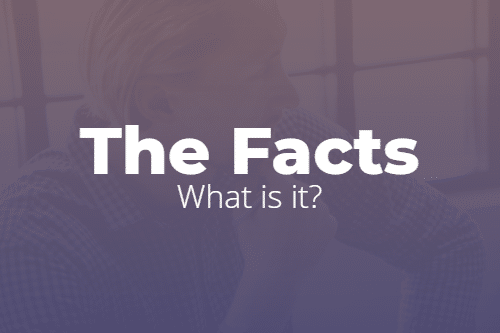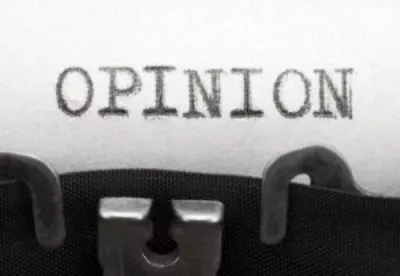
How to Remove Yourself & Fake Posts From CheatLand.com
This page has been peer-reviewed, fact-checked, and edited by qualified attorneys to ensure substantive accuracy and coverage.
Being labeled as a “cheater,” “deadbeat,” or “homewrecker” is extremely embarrassing and detrimental to one’s psyche. It also stands to ultimately spill over into one’s personal and professional life when preserved and flaunted for all to see on the Internet. CheatLand.com is one of the oldest cheater-shaming and reporting websites on the Internet, where cheaters, sex offenders, scammers, liars, and homewreckers are “exposed.” If you’ve found yourself at the center of malicious and baseless accusations on CheatLand.com, we’re here to help.
In this blog post, we’re going to take you through how to remove yourself and fake posts from CheatLand.com, whether Cheatland is even a legal website, and why it threatens to uproot both your personal and professional life.
With a team of experienced attorneys, we will fight for the closure you deserve. Take back control today.Don't suffer in silence.
There’s two core ways to remove yourself and fake posts from CheatLand.com:
- Reach out to an experienced internet defamation attorney for content removal.
- Fill out CheatLand’s Contact Form if you’ve found nonconsensual pornography or other photographs.
- Important: Do NOT threaten them with legal action! It only stands to worsen the situation.
Defamation Removal Tip: After finding yourself at the center of false cheating reports and comments on the Internet, it’s imperative you preserve all relevant evidence! Preserve, preserve, preserve! Doing so will ultimately assist in strengthening your removal case, identifying the malicious poster, and recovering damages. We also recommend having a trusted friend or family member assist in the documentation process, as to help refute any potential claims of evidence tampering by the opposing-side.

The Brass Tacks: What is CheatLand.com?
Founded in 1997, CheatLand.com is one of the oldest cheater-shaming and homewrecker exposing websites on the Internet! You know what that means, right? Domain and search result authority. Simply put, CheatLand.com’s cheater-shaming platform stands to ultimately carry more authority in Google’s search results, meaning there’s a good chance a false cheater and homewrecker report including your name or image could show up as a top search result.
Finally, CheatLand.com, among tens of thousands of other user-generated content platforms, is protected (and legal) under Section 230 of the Communications Decency Act – a landmark piece of Internet legislation immunizing websites for content posted by third-parties. As such the site takes an incredibly hands-off approach when it comes to vetting and removing content. Giving malicious and disgruntled Internet trolls carte-blanche to post as they please opens up the defamation floodgates to unprecedented levels and stands to seriously affect your online reputation.
It’s time to put an end to the lies.

How to Remove Yourself & Fake Posts From CheatLand.com
Let’s get to the reason you clicked on this post, “How can I remove myself from Cheatland.com?” Simple. Contact an experienced Internet defamation attorney AS SOON AS POSSIBLE!
Due to being protected under Section 230 of the Communications Decency Act, most cheater-shaming and homewrecker exposing websites take a hardline approach towards post and comment removals. Compiling evidence, understanding Internet defamation legalities and nuances, and identifying anonymous online trolls isn’t something that average folks can undertake by themselves. Tackling online defamation without professional help could ultimately lead to failing to achieve an adequate remedy or removal – or even making the situation worse.
At Minc Law, in our tenure as experienced Internet defamation attorneys, we’ve built up an impressive arsenal of legal tactics to not only remove online defamation and false accusations, but identify anonymous online posters, prove distribution of images without consent, and de-index content and URLs from Internet search results. And, where websites are playing hardball and refusing to remove clearly defamatory and libelous content, we can assist in the procuring of a court order to remove content
Most importantly, we can guarantee your removal from CheatLand.com, simply contact us as soon as possible at (216) 373-7706, or by scheduling a defamation consultation with an intake specialist online by filling out our online contact form. To find our complete list of websites and bulletin boards we offer guaranteed defamation removals for, head on over to our Guaranteed Removals page. And, we conduct guaranteed defamation removals all for a flat, reasonable fee.
Do Not Threaten CheatLand.com With Legal Action!
Whatever you do, do NOT threaten CheatLand with legal action, as this will only add fuel to the fire. CheatLand’s ‘Contact’ page states, “If you threaten us or our service providers, the post will remain on the site for eternity no matter what.”
They continue, “If you contact any of our service providers to complain, we will find out and will encourage public debate about your claims, including posting your name and talking about you as a part of the debate.” Poking the bear only stands to worsen the bite.
What About Revenge Porn & Nude Photographs?
CheatLand.com does explicitly prohibit the posting of nude pictures and reporting of minors (persons under age 18). Should you find a nude photograph of yourself or post about a minor, try reaching out to CheatLand.com via their contact form.
And remember, be tactful when sending a message or filling our CheatLand’s contact form, as all communications viewed as threats could be further disseminated, ridiculed, and posted online.
Defamation Law Fact: Several common names for defamation include: vilification, traducement, character assassination, and calumny. Do however understand that the term ‘disparagement’ is in truth an incorrect label often applied to defamatory communications. Disparagement refers to a false statement of fact which affects a person’s or business’s proprietary and financial rights, while defamation covers statements affecting a person’s or business’s reputation.
★★★★★
“Melanie was absolutely fantastic. Six years ago, someone wrote something terrible about me online and it followed me wherever I went! Jobs, relationships, etc. I finally got in touch with Minc, and Melanie was so courteous, professional, and diligent about getting the post removed. Thank God for Minc Law because I’m getting married next year, and I finally feel comfortable using my full name on my wedding announcements! Thank you, Minc!!!”
HCP, September 28, 2020





